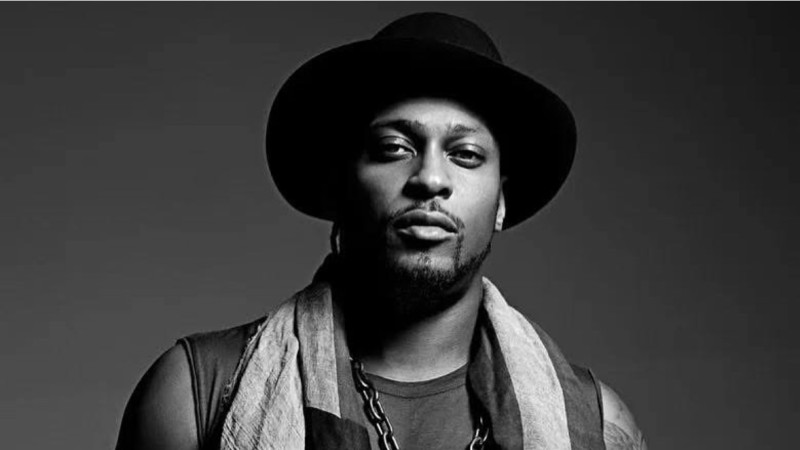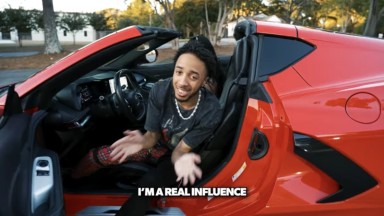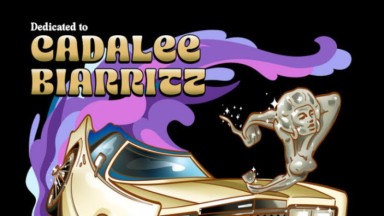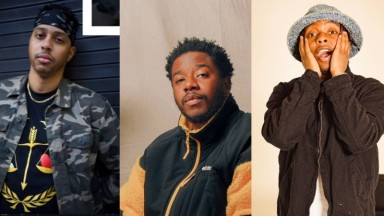Remembering D’Angelo: A Soulful Voice Gone Too Soon
Published on Oct 14, 2025

On October 14, 2025, the music world lost one of its most enigmatic and influential voices. Michael Eugene Archer—better known as D’Angelo—passed away at the age of 51 following a private battle with pancreatic cancer. His family confirmed the news, describing this as the dimming of “a shining star.”
His departure leaves a void not just in R&B and neo-soul, but in the broader spectrum of modern music, where his creative restlessness, emotional depth, and musical integrity inspired countless artists.
Early Life & Musical Awakening
Born on February 11, 1974 in Richmond, Virginia, D’Angelo was raised in a deeply spiritual environment—his father was a Pentecostal preacher. He first displayed musical promise as a child; by age three he was already experimenting on the piano. Over time, he gravitated toward blending gospel, soul, jazz, and funk.
In his teenage years, he teamed with local musicians and eventually competed in Amateur Night at Harlem’s iconic Apollo Theater in 1991. That experience—winning rounds and earning recognition on a storied stage—helped pave his path to the recording world.
Artistic Breakthroughs & Milestones
Brown Sugar
(1995)
D’Angelo’s debut album, Brown Sugar, arrived in 1995 and quickly made an impact. The album fused classic soul sensibilities with modern hip-hop inflection, giving rise to a sound that would later define “neo-soul.” Hit songs like “Lady” and the title track helped the album earn platinum certification and lasting acclaim.
Voodoo
(2000)
After a period of careful development, D’Angelo released his sophomore work, Voodoo, in 2000. This album topped the charts and earned him multiple Grammy awards.
One of the album’s standout tracks, “Untitled (How Does It Feel),” became iconic—not only for its sensual sound but also for its visually striking music video, which featured D’Angelo performing shirtless in an intimate one-shot style. The song earned him a Grammy for Best Male R&B Vocal Performance.
Voodoo is often revered as a neo-soul masterpiece, marked by loose rhythms, raw emotion, and a willingness to push boundaries. Yet the success also weighed heavily on D’Angelo, who struggled with fame and expectations thereafter.
Retreat, Struggles & Reemergence
After Voodoo, D’Angelo largely withdrew from the public eye. He admitted in interviews that the pressures surrounding image, success, and identity took a toll. He battled alcohol and personal challenges during that period.
When he finally reemerged, the weight of anticipation was heavy. In 2014, he released Black Messiah, an album imbued with social commentary, urgent energy, and a recall of the radical spirit of funk and soul. The album was lauded by critics and fans alike, solidifying his reputation not just as a vocalist but as an artist with both musical depth and moral voice.
Although Black Messiah would be his final studio album released in his lifetime, D’Angelo remained musically active, occasionally resurfacing in performances and collaborating on new material. In 2024, he featured with Jay-Z on “I Want You Forever,” fueling hopes for a fourth solo project.
Musical Style & Legacy
D’Angelo’s artistry was defined by soulful vulnerability, textural richness, and emotional honesty. He often layered his own voice in harmonies, creating depth and resonance. His instrumentation—guitar, keys, and rhythm—blended jazz, funk, gospel, and hip-hop in seamless fusion.
Unlike many contemporaries, D’Angelo was never content to repeat formula. Each album carried risk. Brown Sugar felt classic yet fresh; Voodoo was loose, gritty, and immersive; Black Messiah rang with passion, protest, and purpose.
His influence extends across generations. Artists from Alicia Keys, Frank Ocean, and Maxwell to newer voices cite D’Angelo as inspiration for how to merge vulnerability with strength, soul with experimentation.
Final Reflections
D’Angelo’s passing is a profound loss—but his music remains timeless. In tracks that explore love, identity, pain, and redemption, he spoke with sincerity. In moments of silence between notes, he left room for listeners to feel.
Though he is gone, his legacy thrives in the hearts of those moved by his voice, the artists he influenced, and the music that still resonates deeply. As the family said: “We are eternally grateful for the legacy of extraordinarily moving music he leaves behind.”




